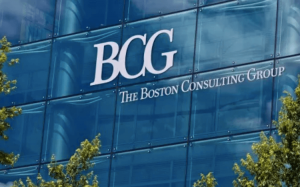Recently, Jack Hollis, Executive Vice President for Toyota, stated that consumer demand is insufficient to support the mass adoption of battery-powered electric vehicles (EVs), claiming that battery EVs cost too much and the infrastructure isn’t ready for away-from-home recharging.
Boston Consulting Group (BCG), however, has released a market projection for EV adoption every year since 2018—every year they’ve repeated the same analysis, and every year they’ve gotten it wrong, under-forecasting how fast EV adoption is going to happen, according to Recurrent Auto Chief Executive Officer Scott Case. Per Case, BCG’s original 2018 EV forecast for 2030 predicted a market share of 21%, and since then the expected market share has more than doubled, reaching a projection of 53% in the 2022 report.
“The market adoption is just happening faster than any moment in the past. This is not about when we get to complete it, or what the numbers have been already. It’s what the best industry experts are forecasting about how fast this is going to happen,” said Case in an interview with Teslarati. “We still have eight years between now and 2030….Eventually, they will get it right because we’ll be in 2030 and we’ll know exactly how many cars were sold that are EVs versus combustion engines. But there’s clearly only one direction that this adoption forecast is going.”
The CEO went on to review the three major factors BCG is using in its current model: projections for battery prices, available EV selection, and government policy changes supporting EVs. Over the past three decades up to 2018, there has been a 97% cost reduction in lithium-ion battery prices, flattening out since then and even increasing slightly due to post-pandemic supply chain issues.
The growing range of EV options on offer is also helping increase adoption, as EVs continue to move from a niche product to a far more approachable option to everyday drivers, with Case predicting that by 2023 the Tesla Model Y will be the global best-selling vehicle without any help from tax credits or regulatory support.
While BCG’s 2022 forecast does not account for the recently-signed Inflation Reduction Act, nor California’s proposed ban on the sale of gasoline vehicles in 2034, it is uncertain whether the new regulatory structures will move the needle on EV market share faster than the growing consumer preference for the new vehicles. With BCG’s next forecast due in spring of 2023, time will tell whether or not the firm’s predictions will be on point.

























